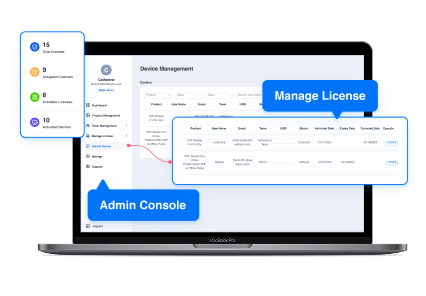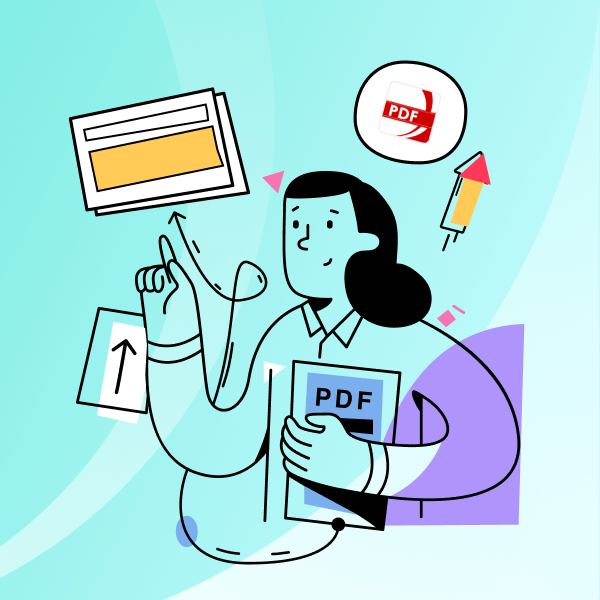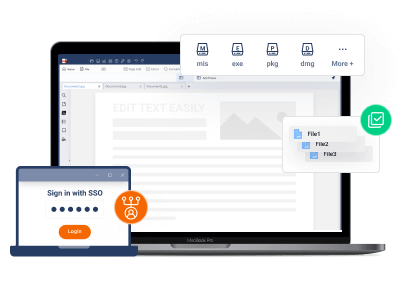
How to Write a Motivational Letter

Crafting a motivational letter is a crucial skill for articulating your aspirations and qualifications in a personal yet professional manner. Ideal for job, scholarship, or university applications, this guide will show you how to express your enthusiasm and experiences compellingly.
What is a Motivational Letter?
Let's get started with an intriguing introduction!
A motivational letter is a detailed, personal document crucial in job applications and for academic or educational programs, where it helps portray you as the ideal candidate. More comprehensive than a cover letter, it addresses the admission committee or employers, highlighting your motivations, qualifications, and why you're the perfect candidate, thereby enhancing your application process.
This professional letter goes beyond job requirements, offering a narrative of your aspirations and suitability for the opportunity.
Discover how to write a notarized statement with our detailed instructions, ensuring your document is legally authenticated.
How to Write a Motivational Letter
Writing a motivational letter involves a strategic approach to effectively communicate your aspirations, qualifications, and compatibility with the opportunity.
Here's how to do it step by step:
Step 1: Research and Preparation
- Understand the specific requirements of the job, academic program, or organization.
- Research their values, mission statement, and culture, particularly for international universities or companies.
Step 2: Strong Introduction
- Start with an engaging opening that captures the reader's attention.
- Introduce yourself and briefly state your professional goals or purpose of applying.
Step 3: Body Paragraphs - Experiences and Skills
- Detail your academic, job, and professional experiences.
- For international students or prospective students, discuss how these experiences have prepared you.
- Tailor your background to align with the opportunity’s requirements.
Step 4: Express Motivation and Goals
- Articulate why you're motivated to apply for this specific role or program.
- Discuss how it aligns with your professional aspirations.
- For entry-level job seekers, focus on your eagerness to learn and grow professionally.
Step 5: Personalization and Authenticity
- Ensure your letter reflects your true motivations and personality.
- Customize the letter for each application, avoiding generic phrases.
Step 6: Concluding the Letter
- Summarize your qualifications and reaffirm your enthusiasm.
- Include an optimistic closing, expressing hope for further discussion or an interview.
Step 7: Review and Proofread
- Check for any spelling errors and grammatical mistakes.
- Have someone else review the letter for effectiveness and clarity.
Step 8: Follow Submission Guidelines
- Adhere to any specific instructions given by the admission board or hiring committee.
- If using a motivation letter template, ensure that it is personalized.

Use a Motivation Letter PDF Template
Using a motivational letter PDF template in PDF Reader Pro streamlines the creation of your application letter. Begin by selecting a suitable template and open it in PDF Reader Pro, known for its user-friendly editing features. Customize the template by inserting your personal details, professional experiences, and specific motivations aligned with your application's requirements.
Take a look at our tips on how to write a resignation letter effectively.
Different Types of Motivational Letters
Motivational letters can vary depending on their purpose and the context in which they are used. Here are several types of motivational letters:
- Job Application: Focuses on skills and suitability for a job opening, mentioning career aspirations.
- University Admission: Highlights academic achievements and reasons for choosing a course or university following admission requirements.
- Scholarship Applications: Details academic strengths, financial needs, and scholarship benefits.
- Internship Applications: Expresses enthusiasm for practical experience and career goals at an internship company.
- Volunteer Work: Showcases passion for a cause and willingness to contribute to the target organization.
- Graduate School: Discusses academic background and fit for a postgraduate program.
- Professional Development: Explains how conferences or workshops align with professional goals and create a dream institution.
- Exchange Program: Highlights adaptability and cultural openness for study abroad opportunities.
Learn how to write a compelling rebuttal letter with our step-by-step guide, effectively addressing and disputing points of contention.
Key Elements for a Motivational Letter
The key elements of a motivational letter, particularly for university admissions or career aspirations, include:
-
Introduction: A compelling opening that introduces you and your motivation for applying, whether for a university program, an internship, or a job.
-
Proper Structure: Adhering to a clear structure, such as a 3-5 paragraph format, to organize the content effectively.
-
Body of Content: Detailed paragraphs that outline your academic career, career path, and future career goals. This section should align your aspirations with the admission requirements or the target organization's profile.
-
Personal Motivation and Aspirations: A genuine narrative of your career aspirations, explaining why you are attracted to the specific university, company, or volunteer opportunity.
-
Concise and Clear Writing: Avoid cumbersome elements and focus on perfect sentences clearly conveying your ambitions and qualifications.
-
Conclusion: Summarize your motivation and reiterate your interest in the opportunity, whether for continued education at a dream institution or your dream job.
-
Authenticity: Ensuring the motivational statement is authentic, avoiding made-up stories, and presenting a beautiful story about your goals and experiences.

Motivational Letter: FAQ
How is it Different from a Cover Letter?
A cover letter is job-specific, while a motivational letter discusses overall goals, aspirations, and suitability for a position or program.
How Long Should My Motivational Letter Be?
Typically, it should be about one page long and structured clearly.
Can I Use the Same Letter for Multiple Applications?
It’s better to tailor each letter to the specific institution or job, highlighting alignment with their program or company.
How Do I Make My Letter Stand Out?
Be genuine and specific about your motivations and experiences, and provide examples demonstrating your skills and aspirations.
Is Personalization Important in a Motivational Letter?
Yes, personalizing your letter to reflect your unique story and connection to the opportunity makes your application more compelling.
What Tone Should I Use in My Letter?
Maintain a professional yet enthusiastic tone, balancing formality with a touch of personal flair that reflects your character.
How Important is the Structure and Format?
A well-structured letter with a clear format is crucial for readability and making a positive impression. Stick to a traditional letter format unless creativity is specifically encouraged.
Mastering the Format of a Motivational Letter
Mastering the format of a motivational letter is a crucial step in effectively communicating your passion, qualifications, and suitability for an opportunity. A well-crafted letter balances professionalism with personalization, allowing your unique story and motivations to resonate with the reader.
It's about more than just following a structure; it's about infusing the letter with your genuine enthusiasm, clearly articulating your goals, and demonstrating how you align with the specific program, job, or organization. Remember to keep the tone respectful yet engaging, ensure the content is relevant and concise, and conclude with a compelling call to action.











 Free Download
Free Download  Free Download
Free Download 
